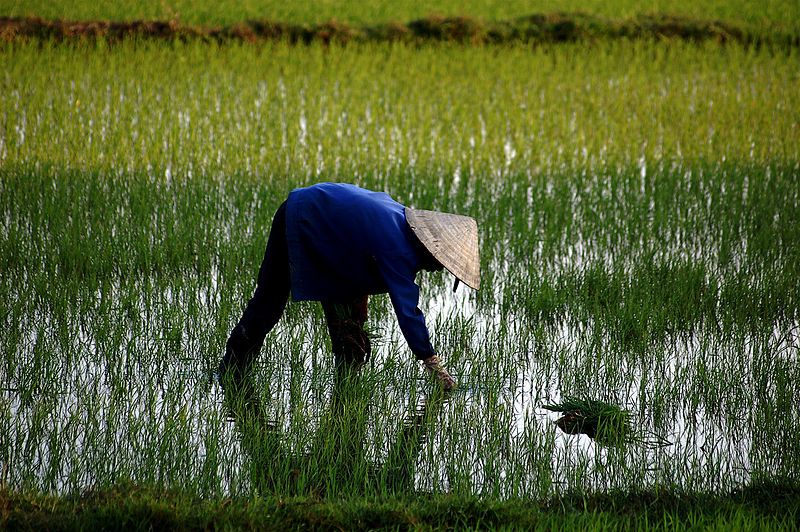Food security in Vietnam addressed at Hanoi meeting
150 countries and 20 international organisations have been represented by more than 500 delegates in Hanoi, Vietnam this week at the Global Conference on Agriculture, Food Security and Climate Change (AFC). Food security in the region has been top of the agenda and there have been calls for development of climate-smart agriculture that will improve long-term sustainability.

150 countries and 20 international organisations have been represented by more than 500 delegates in Hanoi, Vietnam this week at the Global Conference on Agriculture, Food Security and Climate Change (AFC).
Food security in the region has been top of the agenda and there have been calls for development of climate-smart agriculture that will improve long-term sustainability.
Speaking on the opening plenary session at the AFC, Minister of Agriculture and Rural Development Cao Duc Phat emphasised the increased negative impacts of climate change on food production.
Climate-smart agriculture includes techniques such as mulching, inter-cropping, no-till farming, more efficient grazing and improved water management. The enhanced productivity and resilience, and the reduction in greenhouse gas emissions that results from these techniques signify a more sustainable approach to agriculture and greatly improves food security.
Experts have suggested that without strong adaptation and mitigation measures, climate change will reduce food crop yields by 16% worldwide by 2060.
Climate change in South and South-east Asia is expected to reduce agricultural productivity by as much as 50% during the next thirty years.
Alexander Muller, assistant director-general of the Food and Agriculture Organisation of the UN in Rome, said attention must be given to small-scale farmers, who are more vulnerable to changing weather patterns and poverty.
Victoria Kwakwa, World Bank Country Director in Vietnam, said studies have shown that effective investment in agriculture could be three times more beneficial to poorer communities than investment in other sectors.
Nguyen Van Bo, head of the Academy of Agriculture Science and a member of the International Commission on Sustainable Agriculture and Climate Change, said efforts in Vietnam are ongoing to make agriculture more adaptable to climate change by diversifying crops, improving water efficiency, varying cropping patterns and using adaptive technologies such as mulching and no-tillage farming.
The commission estimates that over 40% of the country's greenhouse gas emissions come from agriculture. Techniques used in growing paddy rice, raising livestock, crop residues and recycling and burning are unsustainable methods and high in carbon use.
The week-long Ha Noi conference will also look at the road map for action that was developed at the first AFC in the Netherlands.
Participants at the conference are expected to call on developed countries to implement action programmes on climate-smart agriculture. The centrality of government-led partnerships and non-state agencies in ensuring more sustainable farming will also be emphasised.
